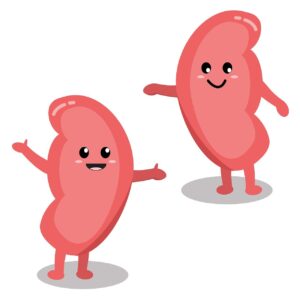Williams Syndrome
What is Williams syndrome?
Williams syndrome is a rare genetic disorder characterized by growth delays before and after birth (prenatal and postnatal growth retardation), short stature, a varying degree of mental deficiency, and distinctive facial features that typically become more pronounced with age.
What are the symptoms of Williams syndrome?
The following are characteristic symptoms of Williams syndrome:
- Difficulty with visual-spatial tasks such as drawing and assembling puzzles
- Affected individuals have outgoing, engaging personalities and tend to take an extreme interest in other people
- Attention deficit disorder (ADD)
- Problems with anxiety
- Phobias
- Dental problems such as teeth that are small, widely spaced, crooked, or missing
- Facial characteristics, including:
- A broad forehead
- A short nose with a broad tip
- Full cheeks
- A wide mouth with full lips
- Development of a form of cardiovascular disease called supravalvular aortic stenosis (SVAS), which may lead to:
- Shortness of breath
- Chest pain
- Heart failure. Other problems with the heart and blood vessels
- High blood pressure (hypertension)
What causes Williams syndrome?
Most cases of Williams syndrome appear to occur spontaneously and for unknown reasons. However, some familial cases of the disorder have also been reported.
Ongoing research indicates that sporadic and familial Williams syndrome result from deletions of genetic material from adjacent genes (contiguous genes) located on the long arm (q) of chromosome 7 (7q11.23).
How is Williams syndrome diagnosed?
A diagnosis of Williams syndrome may be confirmed by a thorough clinical evaluation that includes a detailed patient history and specialized blood tests that may detect elevated levels of calcium in the blood.
Another test, known as fluorescent in situ hybridization (FISH), may be used to determine whether a deletion of one elastin gene on chromosome 7 is present. This deletion is believed to occur in the majority of individuals with Williams syndrome.
What are the treatments for Williams syndrome?
There is currently no cure or treatment to specifically treat Williams syndrome. Instead, treatment is directed toward the symptoms that are apparent in each individual.
Where can I find out more about Williams syndrome?
Williams Syndrome Articles

A Girl with Williams Syndrome Gets a Christmas Lights Spectacular

Woman with Williams Syndrome Throws First Pitch at Brewers Game

Study of the Week: A Potential New Treatment for Williams Syndrome

Researchers Discover Potential Williams Syndrome Treatment

Search for a Donor: Kidney Transplant Needed for Woman with Williams Syndrome






